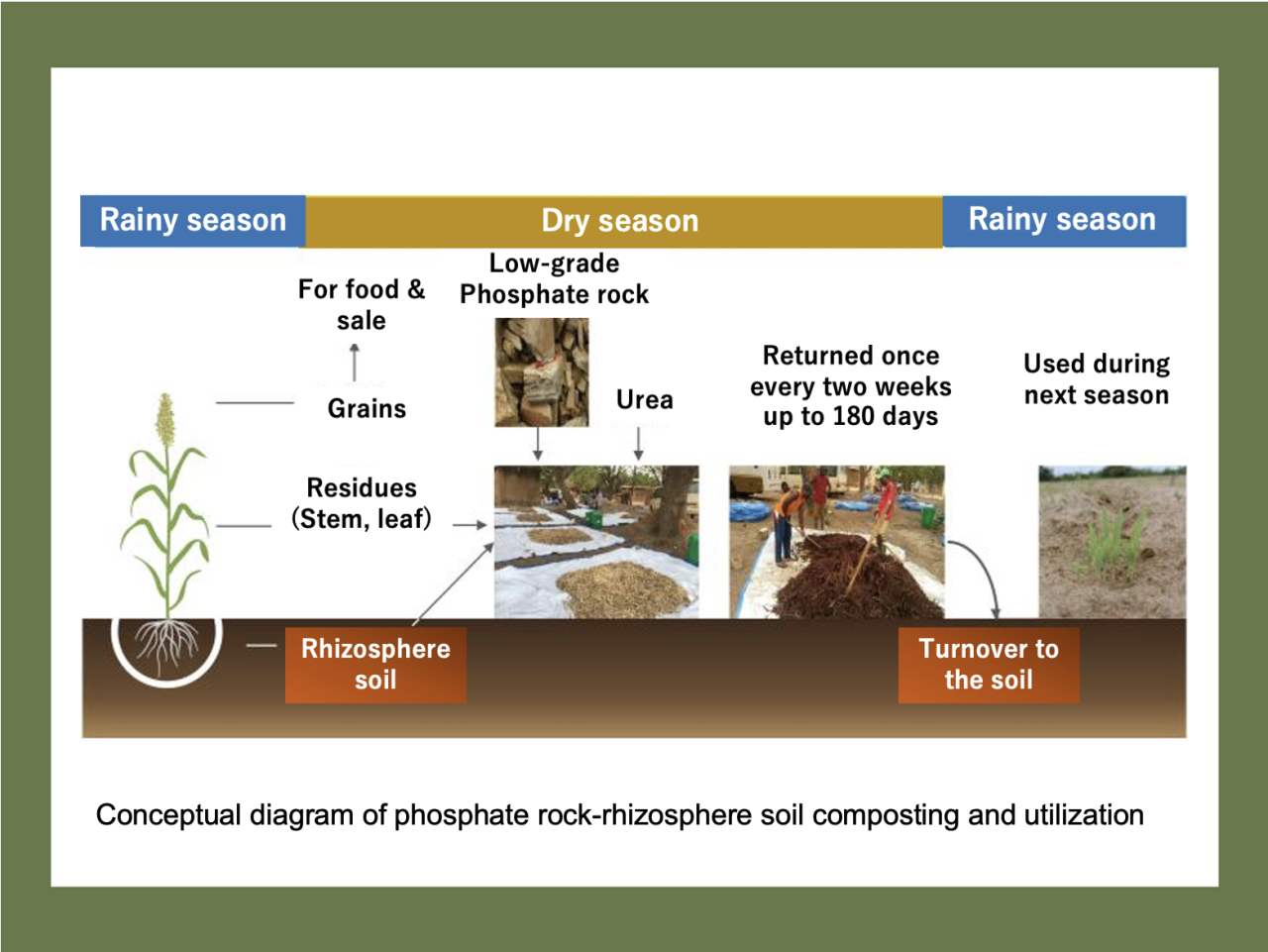Pick Up
714. Balancing Food Production and Improving Soil Fertility with the Power of Soil Microorganisms

In sub-Saharan Africa, including Burkina Faso, crop production is limited by many factors, including severe weather conditions and low soil fertility, resulting in chronic food shortages. In particular, phosphorus deficiency is severe, requiring supplementation with phosphorus fertilizers, which are limited in their availability due to dependence on imports. In addition, the recent global rise in fertilizer prices has made it difficult for small-scale farmers to increase the amount of fertilizer they apply.
Therefore, JIRCAS is conducting the Project on establishment of the model for fertilizing cultivation promotion using Burkina Faso phosphate rock, a joint project supported by the Japan Science and Technology Agency (JST) and the Japan International Cooperation Agency (JICA) under the Science and Technology Research Partnership for Sustainable Development Program (SATREPS), to promote fertilizer application in Burkina Faso. In collaboration with the Environmental Institute for Agricultural Research (INERA) of Burkina Faso and Joseph Ki-Zerbo University, we developed a technology to convert low-grade phosphate rock from Burkina Faso, an underutilized resource, into fertilizer by fermentation with locally available crop residues (sorghum straw and leaves) and soil near plant roots (rhizosphere), which is rich in phosphate-solubilizing microbes. The technology has been developed to convert phosphate rock into fertilizer by fermentation. We have shown that adding phosphate rock and rhizosphere soil increases the effective phosphorus content in compost and the number of microorganisms, including those which release enzymes associated with phosphate solubilization. Our research results were published in Frontiers in Environmental Science in 2020.
In addition, field trials have shown that phosphate rock-rhizosphere soil-added compost has a significant yield increase comparable to that of commercial chemical fertilizers. Furthermore, there was an increase in soil microbial content and an improvement in soil chemistry, indicating that it is an effective technology for combating soil degradation. These research results were published in Scientific Reports in 2022, and a press release has been issued.
The phosphate rock-rhizosphere soil-added compost developed in this research is expected to become a new option for local farmers, contributing to food issues in sub-Saharan Africa through the utilization of unused local resources and an effective technology against the sharp rise in global chemical fertilizer prices.
References
Sarr et al. (2020) Phosphate-solubilizing fungi and alkaline phosphatase trigger the P solubilization during the co-composting of sorghum straw residues with Burkina Faso phosphate rock. Front. Environ. Sci. 8, 559195. https://doi.org/10.3389/fenvs.2020.559195
Sagnon et al. (2022) Amendment with Burkina Faso phosphate rock-enriched composts alters soil chemical properties and microbial structure, and enhances sorghum agronomic performance. Sci. Rep. 12, 13945. https://doi.org/10.1038/s41598-022-18318-1
Development of Organic Fertilizer Production Technology Using Low-Grade Phosphate Rock―Yield increase effect comparable to chemical fertilizer due to the action of soil microorganisms― https://www.jircas.go.jp/en/release/2022/press202212
Contributors: IWASAKI Shinya (Rural Development Division); NAKAMURA Satoshi, NAGUMO Fujio, and Papa Saliou SARR (Crop, Livestock and Environment Division)
